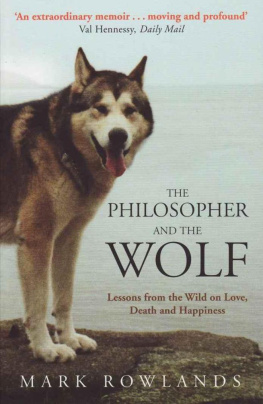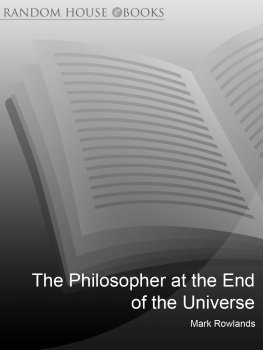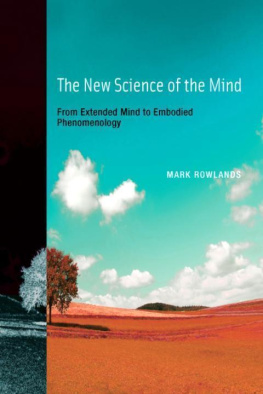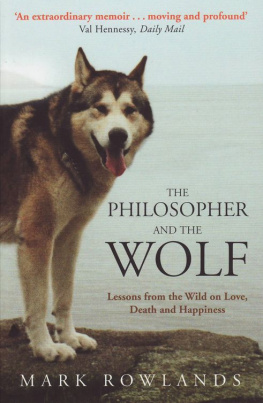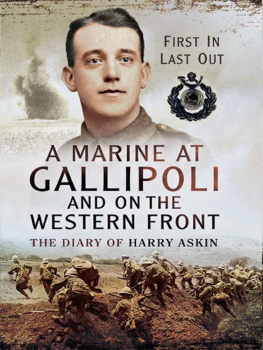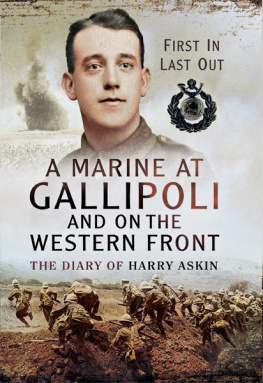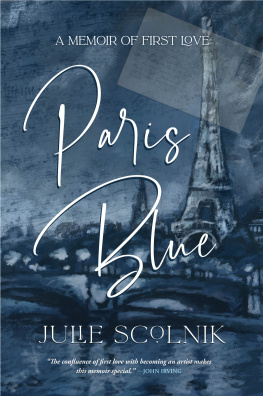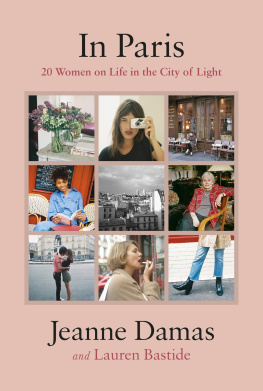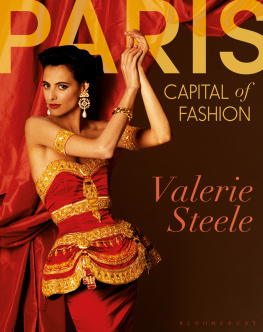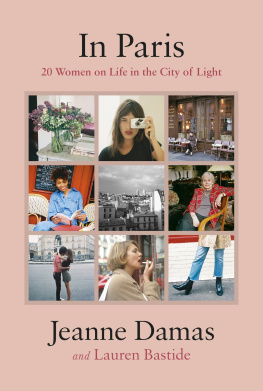PARIS WAS OURS

THIRTY-TWO WRITERS REFLECT
ON THE CITY OF LIGHT

EDITED BY
Penelope Rowlands

Algonquin Books of Chapel Hill
Published by
Algonquin Books of Chapel Hill
Post Office Box 2225
Chapel Hill, North Carolina 27515-2225
a division of
Workman Publishing
225 Varick Street
New York, New York 10014
2011 by Penelope Rowlands. All rights reserved.
For permission to reprint some of the essays included
in this book, grateful acknowledgment is made to the holders of
copyright, publishers, and representatives named on pages 27778,
which constitute an extension of the copyright page.
Library of Congress Cataloging-in-Publication Data is available.
E-book ISBN 978-1-61620-036-7
For Julian,
filius et lux
CONTENTS
INTRODUCTION

LArrive
I M A PARISIAN of the recurrent, revolving-door kind. I first moved to the French capital in my early twenties with my then boyfriend, sailing grandly on the Queen Elizabeth II, which, thanks to a miraculous marketing gimmick known as Youth Fare, allowed us to take the six-day voyage to Cherbourg with all the luggage we could stash for the appealing sum of $125 each. It was late Novemberthe last Atlantic crossing of the seasonand the waves seemed as gray and menacing as sharks; the air, as we circumnavigated the upper deck each afternoon, felt embalming.
But we were past feeling. Finding ourselves in the middle of the ocean only reminded us that wed taken a step that couldnt be undone. We were heading off to live in a city that we knew only glancingly but were sure that we would love, if only because of all the French movies that we had seen together at the hippie college wed attended in upstate New York. We were major cinephiles, drawn, particularly, to the films of the director Jacques Rivette, whose spaced-out, chain-smoking young protagonists wore tight jeans and indulged in long nocturnal monologues. Just like us. One Rivette masterpiece, in particular, held us in its thrall: Paris nous appartient, which we translated, loosely, as Paris Is Ours. Soon, we knew, it would belong to us, too.
After we arrived at Cherbourg, we droveinexplicably, it seems to me nowall through the night, through one dusky Norman village after another, with their narrow streets, looming, charcoal-colored houses, and apparent absence of life. Paris, at dawn, felt even grayer. The French postal system had been on strike for weeks; as a result, wed set sail from New York without knowing the actual address of the apartment wed rented, sight unseen. We parked the car in the first place we found, utterly lost, killing time until it was late enough to call the friend of a friend whod found the apartment for us in the first place. I remember stumbling, exhausted, through the square Saint-Mdard while Jamiewho spoke French, unlike measked a stranger if we were in the Latin Quarter. Youre in its suburbs, the man joked.
The apartment, when we found it, was even farther out than thatpositively exurban, in an infinitely depressing quartier populaire. Still, we stayed there for the first half of that year, working at all manner of strange jobs, hating the city, resisting it, loving it, falling in with it. I learned the language, it seems, through sheer humiliation. I can still recall the needling: The waiter, for example, who refused to bring me a hard-boiled eggthat classic French workers breakfastin a caf because I couldnt pronounce the malevolent short u that sits dead center in the word dur, meaning hard. He was unabashedly gleeful as he made me repeat it, shrugging his shoulders, delightedly, in faux incomprehension each time. The more I stumbled, the happier he became. I settled for a croissant instead.
That same maddening vowelthe bane of many an English speakerwedged itself between me and a prickly, middle-aged Frenchwoman (there seemed to be no end of these), my boss at one of the numerous peculiar jobs I held that year. My task, as I recall it, was to recite numbers from a long listI cant imagine whyas this forbidding creature glowered at me from across her cluttered living room. It was late winter by then and the afternoons seemed cruelly short, the Parisian sky leaching of color, turning inky black far earlier than I thought it should.
Au-dessus ou au-dessous? ma patronne thundered at one point, with her pitiless regard, asking me to delineate exactly how one number stood in relation to another. Her question meant simply Above or below? but we both knew it was about much more than that. (The two words look alike, but their pronunciation, to the French ear, is not at all the same.) My foreignnessmy pale English looks, my halting Frenchwas, visibly, as irksome to her as it had been to the waiter; shed seemed inclined to get rid of me since Id first stepped through her porte cochere.
I knew the right answer, the one I needed to express, but it was the one with the evil u at its heart and therefore, as Madame herself knew all too well, hopeless. (It would be months before I could manage the short, breathy, almost whistling sound the vowel requires.) I plowed ahead anyway, but what came out, of course, meant below, not above. Mademoiselle, she responded fiercely. There was nothing further to say. I left that afternoon knowing that I neednt bother to return. I remember walking by the riverher ground-floor apartment was just steps from the Seinefeeling entirely, thunkingly, lost.
And so it went, a year of highs and lows, mastering a language, scrambling for money, suffering the scorn of waiters and bus drivers, making friends. At one point we were so poor that we took the Mtro to Fauchon, the luxury food shop off the place de la Madeleine, one of the few places that would accept the American Express card that Jamies father had given us for emergencies. (Strange as it seems these days, credit cards were then rare.) We charged foie gras and fancy jams in quantity, then lived off them, unhealthily, for days.
We hated Paris and loved it all at once, and when we headed back to New York on the last transatlantic crossing the following winter, we did so reluctantlyand forever changed. I wore scarvesfoulards, I called themaround my neck in a way that must have seemed ridiculous to my American friends, along with too-tight blouses more suited to (typically flat-chested) Frenchwomen than to me. Speaking English in public felt impossibly weird. I remember being astonished in Bloomingdales, just after we returned, to find that I could speak to a salesperson in my native tongue and be understood. I knew what it was to think in another language by then, to tailor my thoughts to another world. Jamie and I even had a clutch of native friends. It was only later that I learned how rare this was: the French make few friends, as a rule, and keep them forever. (And so it has proved for me.)
From that point on, la belle France was a touchstone. Or perhaps it had always been. Born a dual national, Id grown up between two culturesEngland and the United Statesand two cities, London and New York. My parents had separated, dramatically and transatlantically, when I was five. France became my middle ground. My Francophile father had taken me to Normandy from his home in London when I was sixteen. When, a few years later, I left his place to travel to Paris for the first time, he marked the occasion with a photograph of me wearing a trench coat, a green BOAC airline bag slung unchicly over my shoulder. Below it, hed captioned the image, touchingly, in ink: Penelope on her first visit to Paris. Id grown up with his stories of black-tie dinners on the


